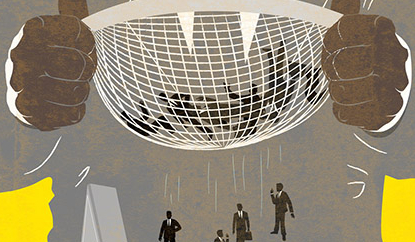独立审计具体准则第15号——期后事项
|
会协字[1996]457号 Chapter 1 General provisions Article 1 This standard is prepared in accordance with the General Independent Auditing Standard to establish standards and to define the responsibility of Certified Public Accountants (“CPAs”) for the audit of events subsequent to the date of the financial statements and to ensure a high standard of professional work. Article 2 The term “subsequent events” in this standard refers to both events occurring between the balance sheet date and the date of the audit report and events occurring between the date of the audit report and the date the financial statements are issued, which have an impact on the financial statements. The term “the date the financial statements are issued” in this standard refers to the date the entity discloses the audited financial statements to the public. Article 3 Unless otherwise specified, CPAs should refer to this standard in performing audit work other than the audit of financial statements. Chapter 2 General principles Article 4 The CPA should maintain professional scepticism and pay adequate attention to the impact of the following two types of subsequent events on the financial statements: (1) events that provide further evidence of conditions that existed at the balance sheet date; and (2) events that do not affect the amounts in the financial statements but may affect the correct understanding of the financial statements. Article 5 Before the date of the audit report, the CPA should perform the necessary audit procedures and obtain sufficient appropriate audit evidence to determine whether subsequent events have occurred. If subsequent events have actually occurred, the CPA should, after performing the necessary audit procedures, determine the types of subsequent events and the extent of their impact on the financial statements and draw audit conclusions therefrom. Article 6 The CPA should request the entity to make adjustments or disclosure based on the types of subsequent events and the extent of their impact on the financial statements. If the entity does not accept the recommendations, the CPA should determine whether, and how, to reflect this in the audit report. Article 7 The CPA does not have any responsibility for performing audit procedures or making any specific enquiries to detect subsequent events occurring between the date of the audit report and the date the financial statements are issued. However, the CPA should pay attention to subsequent events identified to him and perform relevant audit procedures on these. The entity's management has the responsibility to inform promptly the CPA of any subsequent events which may affect the financial statements. Article 8 If the accounting information for a component of the entity, such as a division, branch or subsidiary etc., is audited by another accounting firm, the CPA should understand the audit procedures performed in respect of subsequent events that may have occurred and consider the impact of the relevant audit conclusions on the entity's financial statements as a whole. Chapter 3 Audit procedures Article 9 When performing audit procedures on subsequent events, the CPA may combine the procedures with substantive procedures performed on the financial statements or perform extra audit procedures. Extra audit procedures should be performed as near as practicable to the date of the audit report. Article 10 Audit procedures on subsequent events include: (1) making enquiries with the entity's management and relevant staff; and (2) reviewing relevant information. Article 11 The CPA should generally enquire about the following matters when auditing subsequent events: (1) the current status of items that were accounted for on the basis of preliminary data; (2) whether any unusual accounting adjustments have been made or are contemplated; (3) whether any events have occurred or are likely to occur which will bring into question the appropriateness of the accounting policies; (4) whether any assets have been appropriated by government or destroyed by some uncontrollable factors; (5) whether sales of assets have occurred or are planned; (6) whether new guarantees, borrowings or commitments have been entered into; (7) whether the issue of new shares or debentures has been made or is planned; (8) whether an agreement to merge or liquidate has been made or is planned; and (9) other relevant matters. Article 12 The CPA should generally review the following information when auditing subsequent events: (1) the entity's latest available interim financial statements and other relevant management reports; (2) declarations or other representations made by the management regarding subsequent events; (3) relevant minutes of shareholders'and management meetings held after the balance sheet date; (4) representations made by the entity's lawyers or legal consultants regarding subsequent events; (5) the procedures the entity's management has established to ensure that subsequent events are identified; and (6) other relevant information. Chapter 4 Considerations in the preparation of the audit report Article 13 For subsequent events which have been detected and have a material impact on the financial statements, the CPA should, based on the types of subsequent events, take the following actions: (1) request the entity to adjust the financial statements for those events that provide further evidence of conditions that existed at the balance sheet date; and (2) request the entity to disclose information for those events that do not affect the amounts in the financial statements but may affect the correct understanding of the financial statements. Article 14 If the entity does not accept the recommendations for adjustment or disclosure, the CPA should express a qualified opinion or an adverse opinion. Article 15 When, between the date of the audit report and the date of the financial statements are issued, the CPA becomes aware of subsequent events which may affect the financial statements, he should promptly discuss the matter with the entity's management. If necessary, the CPA should perform appropriate additional audit procedures to determine the types of subsequent events and the extent of their impact on the financial statements and the audit report. Article 16 If the CPA performs additional audit procedures on subsequent events known between the date of the audit report and the date of the financial statements are issued and takes appropriate actions, he may use either one of the following means to determine the date of the audit report: (1) signing the audit report with two dates, by keeping the original date of the audit report and specifying the new date of the audit report regarding those subsequent events; or (2) changing the date of the audit report, by deferring the original date of the audit report to the date when all additional audit procedures are completed. Article 17 When deciding to change the date of the audit report, the CPA should perform the necessary audit procedures to detect other subsequent events which may have occurred between the original date of the audit report and the amended date of the audit report which may materially affect the financial statements. Article 18 When, after the financial statements have been issued, the CPA becomes aware of subsequent events which existed, but were not detected, at the date of the audit report, he should discuss with the entity the actions to be taken and should consider whether the audited financial statements need revision. If the entity refuses to take appropriate steps, the CPA should consider whether to revise the audit report. Chapter 5 Supplementary provisions Article 19 The Chinese Institute of Certified Public Accountants is responsible for the interpretation of this standard. Article 20 This standard takes effect from 1 January 1997. |








